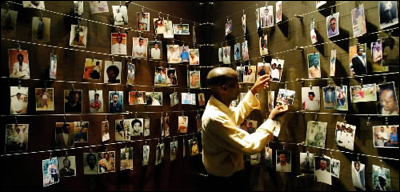This post described the reason for the O.div’s continued existence, but I will also comment here on its subsequent discontinuation. The O.div was a project that began to honour the Greek god, Dionysos. Over the years, that purpose became more contrived. I have since come to see that everything I did for god in the past was very childish and in a way, rather perverse, although it was undeniably real. The old ways of experiencing the gods have run their course. As such, I now have great difficulty in relating to the O.div’s old posts and the attitude in which they were written, even if I still agree with what I wrote. Of what happens now, I feel no desire to speak of. However, I will quote one of my favourite Christian mystics, San Juan de la Cruz (John of the Cross) who wrote:
In order to arrive at that which thou knowest not,
Thou must go by a way that thou knowest not.
+ + +
Original Title: the odivinorum lives again
Original Post Date: August 27, 2007 @ 6:30 pm
on this day of our full lunar eclipse.
After over a month of being inaccessible, the dns has finally been renewed. In its period of digital convalescence, the odivinorum was suddenly forced to grapple with the stark reality of its finitude: Why does this blog exist, does it really matter, etc. On its 2nd year anniversary on this domain name (over 3 years if you count ye olde livejournal days), the Odiv had a classic existential crisis. And I have to admit, the possibility of losing all this writing didn’t bother me as much as I thought it might. Because I still have all the important thoughts I’ve shared here in my head and I could write it all out again, although not verbatim; details rarely concern my Sagittarius-heavy, Mercury-weak chart.
So why continue blogging? Because maybe these words might spark ideas in someone else’s head, or maybe they could help illuminate more obscure arenas of discourse, but above all that, I like to think of the Odiv as something less cerebral, like a siren, or an alarm call. Sounds deliberately created to arouse, annoy, and awaken, forming a constant 24 hour fixture in the aural landscapes of the modern metropolis. A modified excerpt of an email I sent to a dear friend yesterday:
Modernity, it seems to me, is a society in a constant state of crisis… which is really profoundly tragic in a way b/c ppl rarely thrive on uncertainty and the unknown… What an ontological nightmare we have on our hands, and yet, what unprecedented existential opportunities… Modernity’s song is the endless wail of the alarm call, of the siren. At least, I wish it could be. A song that pierces the dreamlike, unconscious grooves and rhythms of everyday life, a song that warns us of danger or that signals the occurance of an accident, of damage, of trauma. But most of all, it is sometimes a song that promises hope for anonymous aid, aid that rushes towards a scene of an equally anonymous violence. That the state will temporarily suspend its drive for meaningless productivity and efficiency, that even the machine itself must bow down, must make space for emergency aid, is something that excites me.
Henri LeFebvre spoke of the desire to reinstate the Festival into “everyday life”, but the Festival at its heart is a violent, Dionysian celebration, and modern culture is founded upon the denial of Dionysus and the desacrilization of matter. To reconstruct the Festival today is inauthentic. But the screaming ambulance, the bellowing firetruck, these vehicles in a state of emergency, represent one of the only kinds of genuine recognitions of the material world created by the state, one of the few, true moments of disruption and humanity in modernity.
So. Let my posts be like alarm calls…


